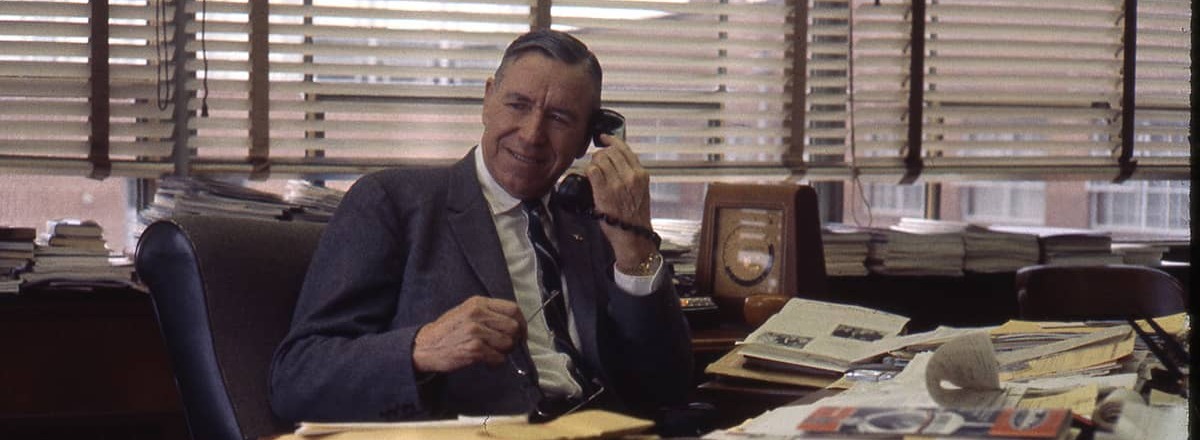
Collett Everman "C.E." Woolman was an aviation pioneer whose career spanned the history of flight from Jennys to jets. As principal founder of Delta Air Lines, he led its steady growth from the world's first crop dusting company to a firm place of leadership among the nation's scheduled airlines.
A native of Bloomington, Indiana (born October 8, 1889), Woolman's heritage was Southern. His father settled in South Carolina and his mother's family were early Kentuckians who farmed on land that is now part of the city of Frankfort. At the time of Woolman's birth, his father was a physics professor at Indiana University. The Woolmans later moved to Urbana, Illinois, where C. E. attended high school.
He attended the University of Illinois, where he belonged to the Agriculture Glee Club and was a member of the football team. His real love, however, was aviation, nurtured by inspiration received when he attended the world's first aviation meet in Rheims, France, between college semesters in 1909. He graduated with a Bachelor of Science degree in agricultural engineering and subsequently became associated with the Extension Department of Louisiana State University, a position which was to bring him ultimately into the field of aviation.
When the boll weevil threatened to destroy the South's cotton economy in the early 1900s, Woolman, as a young district agent who had learned to fly an OX5 Jenny, made the acquaintance of Dr. B. R. Coad, a United States Department of Agriculture entomologist combating the pest in Tallulah, Louisiana. Calcium arsenate, a dry powder, seemed to be the best weapon, but its application was slow and unsatisfactory. Deciding to attack from the air, Coad and his team of entomologists used Army-loaned aircraft and pilots to design effective dusting equipment and conduct experiments on a regular rate of dust flow.
George Post, an aircraft manufacturer representative, observed the dusting experiments and was so impressed that he convinced the management of Huff, Daland & Company, Inc. at Ogdensburg, New York, to form a separate crop-dusting division, Huff Daland Dusters, incorporated on March 2, 1925. George Post was general manager and famous aviator Harold Harris was operations manager. Woolman left the agricultural extension service on May 30, 1925, to take charge of the new company's entomological work as chief entomologist. He brought with him a genial personality, integrity, and a stubborn resistance to failure.
Huff Daland Dusters started commercial crop dusting at Macon, Georgia, on March 25, 1925. Business was lower than expected within the state of Georgia, but high demand for the new service across the South required a more central base of operations. Headquarters moved to Monroe, Louisiana, later that year. Huff Daland Dusters' 18-plane fleet became the largest privately-owned aircraft fleet in the world. Since the dusting company income sharply decreased after the summer growing season, operations shifted in the winters of 1927 and 1928 to Peru.
It was in Peru that Woolman was first involved with passenger service by air, when he and operations manager Harold R. Harris successfully secured Peruvian air traffic rights over stiff competition. In an agreement with the financiers of Pan Am, the Huff Daland Dusters’ airline and air mail contracts were operated by Peruvian Airways Corporation, a Pan Am subsidiary. Service was inaugurated on September 13, 1928, from Lima to Paita and Talara, with a 6-passenger Fairchild FC-2 flown by Huff Daland Dusters pilot Dan Tobin. Peruvian Airways Corporation was absorbed into Pan American-Grace Airways (Panagra) in 1929.
The following year was significant in Delta’s history. Woolman sold the South American interests because of local revolutionary activities and encouraged a group of Monroe businessmen at home to buy the Monroe dusting division from the parent company which he had discovered had been trying to sell it out from under him. The company name became Delta Air Service, for the Mississippi Delta region it served. Woolman was named vice president and was the actual manager of operations. In 1929, his title became vice president and general manager. He was also named to the company’s board of directors in 1930.
The year 1929 was the most significant in Delta’s history as Woolman’s dream of expansion led to the purchase of three five-passenger, 90-mile-per-hour Travel Air monoplanes, and on June 17, 1929, Delta operated its first passenger flight over an original route which stretched from Dallas, Texas, to Jackson, Mississippi, with stops at Shreveport and Monroe (where the company operated from a small building and a hangar at Selman Field).
The Post Office Department in 1930 awarded an airmail contract vital to Delta to a rival airline, but Woolman retained faith. After an interim period of expanded dusting operations, another opportunity came in 1934 when the Post Office Department canceled all airmail contracts and submitted all routes for rebid. Due to technicalities involved in the Post Office hearings dating back to 1930, Woolman resigned as vice president and from the board, remaining as general manager. Delta was awarded an airmail contract stretching from Fort Worth to Charleston.
Through good times and bad, Woolman’s faith in aviation’s future never flagged. His credo for Delta was: “Any individual or business that is completely honest in all its dealings is likely to succeed.” In fact, most of his frequently quoted sayings, i.e., “Let’s put ourselves on the other side of the ticket counter,” are paraphrased versions of the Golden Rule.
On May 5, 1938, Woolman returned to the position of vice president and general manager and was re-elected to the board of directors. He served in that position until October 29, 1945, when he was named president and general manager.
Woolman preferred to leave the limelight to others and was modest and guarded about his private life. For the most part, his charitable efforts remained between him and his checkbook. Few people knew he was a member of the Masonic Fraternity, and he chose to be remembered only as “an active member of the First Presbyterian Church” with regard to his religious life. His hobby of growing orchids was enjoyed by the women working at Delta’s general offices as he often surprised them with the flowers.
The press frequently referred to him as the “stern patriarch” and the “gentle autocrat,” but he had a genuine concern for each of his employees. As his company grew, it caused him considerable dismay that he could no longer remember each employee by name. This intense relationship was mutual. On Woolman’s 25th anniversary with Delta, his employees presented him with a new Cadillac, and although he had other cars, he kept the Cadillac until his death. A painting of Woolman, now at the Delta Flight Museum, was presented to him “on behalf of the pilots of Delta Air Lines, our wives and children, in appreciation for what you have done for us and permitted us to do for ourselves…”
Woolman was named chairman of the board and chief executive officer on November 1, 1965. After his death on September 11, 1966, in tribute to Delta’s employees, he completely reconditioned a 1925 Huff Daland Duster and presented it to the Smithsonian Institution in Washington, D.C., as a memorial to the early days of the airline industry and the dedicated leader who helped shape its development. Another Woolman memorial, designed and built by Delta personnel, stands at the entrance to Delta’s Atlanta Technical Operations Center.
At Woolman’s death, he was survived by two daughters, five grandchildren, a sister, a niece, and a family of 13,000 Delta employees. His wife, the former Helen Fairfield, had died four years earlier.
Activities during his lifetime included: director of Citizens and Southern National Bank; director and vice president of the Air Transport Association; director of REA Express (first airline executive); chairman of the Finance Board of ATA; member of the Southern Business Conference; member of the Advisory Council of Georgia Tech Research Institute; director of the University of Illinois Foundation; director of the Georgia Motor Club; director of Junior Achievement; state chairman of the Industrial Advisory Committee, U.S. Savings Bond Division; member of the National Payroll Savings Advisory Committee; member of the Executive Committee of the Transportation Council for the U.S. Department of Commerce; chairman of the Air Transport Panel of the Transportation Association of America; member of the Communication Transportation Committee of the Atlanta Chamber of Commerce; and member of the Georgia Advertising Commission.
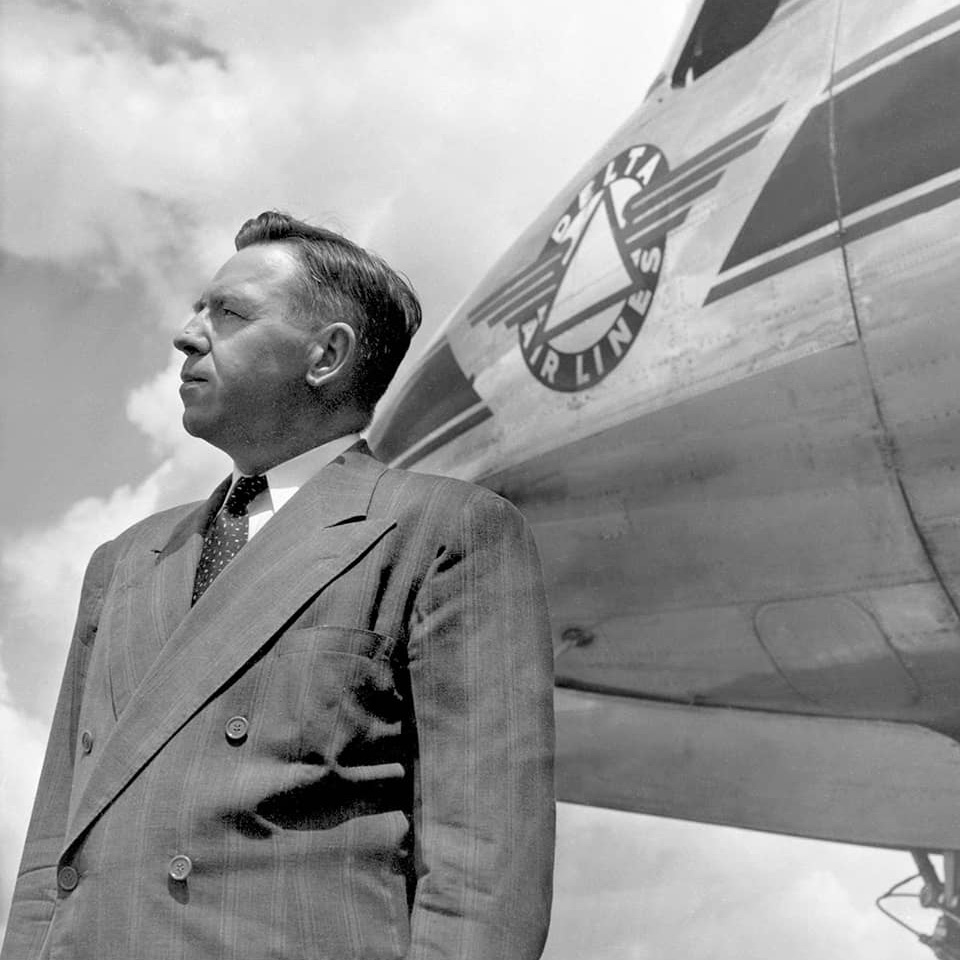
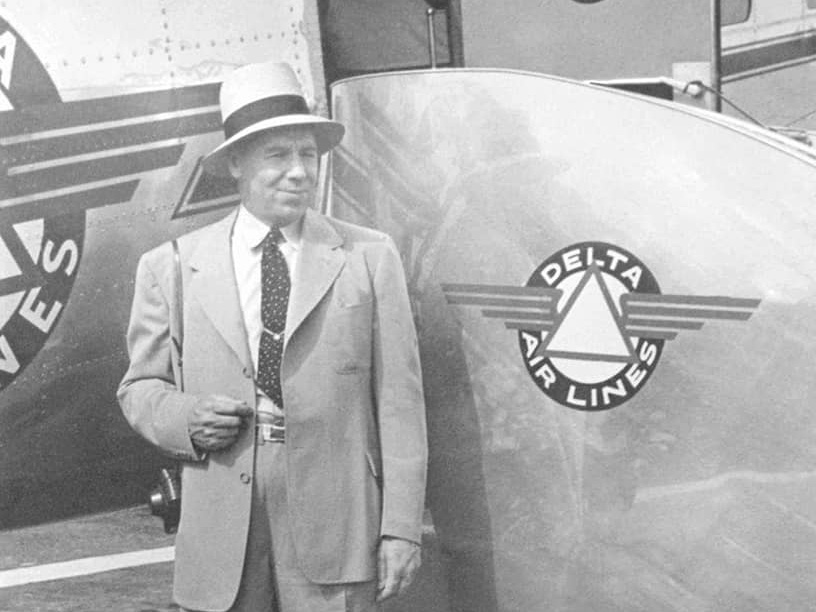
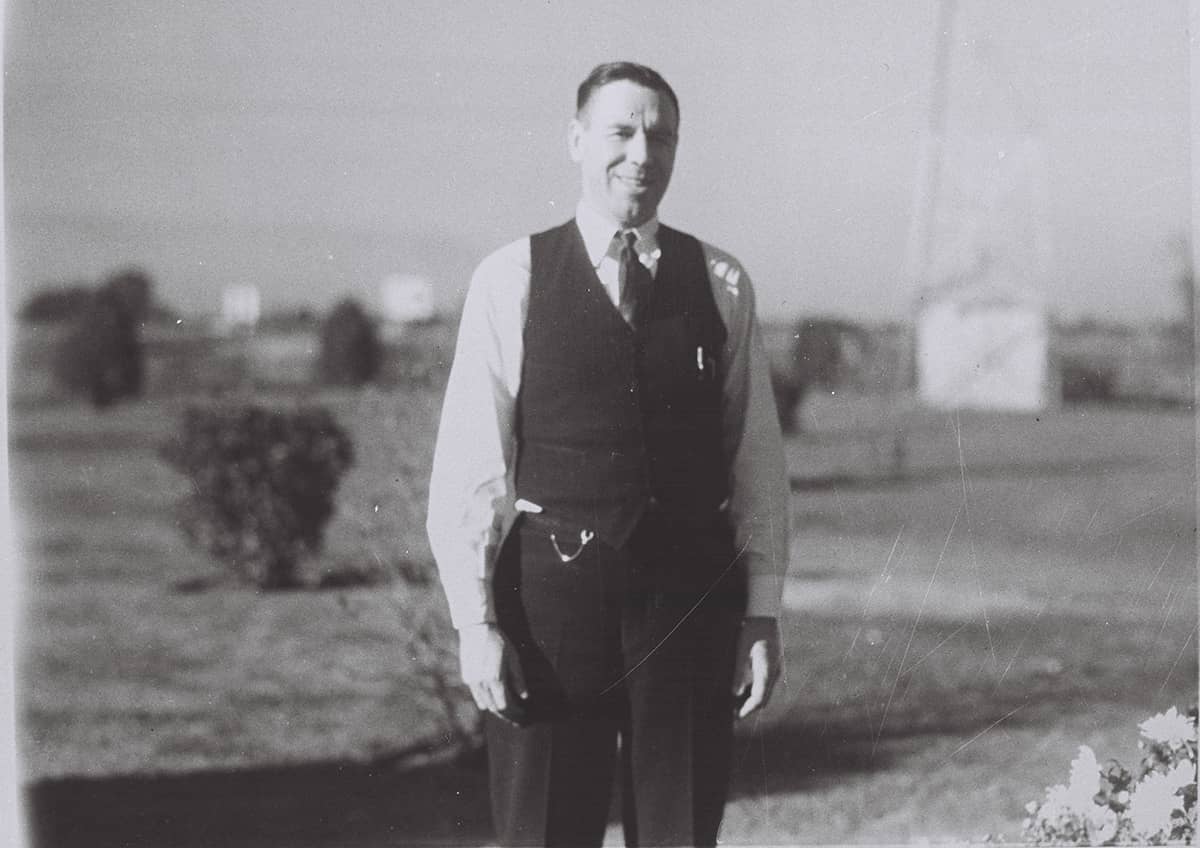
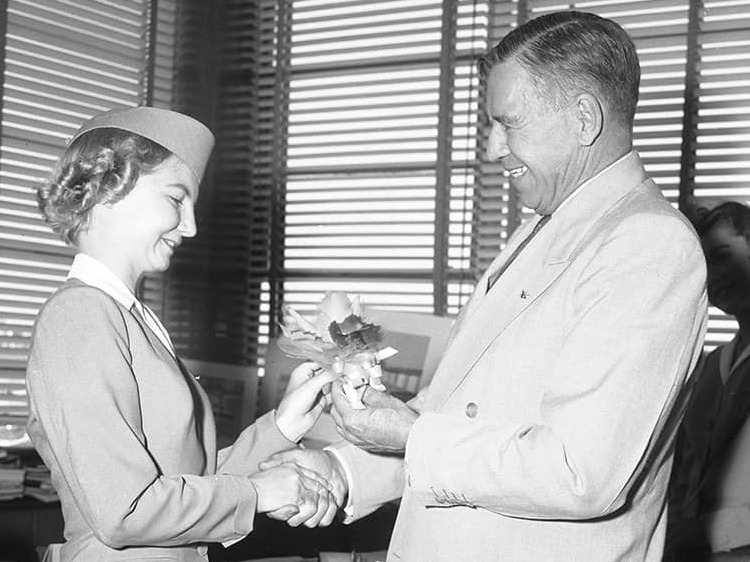
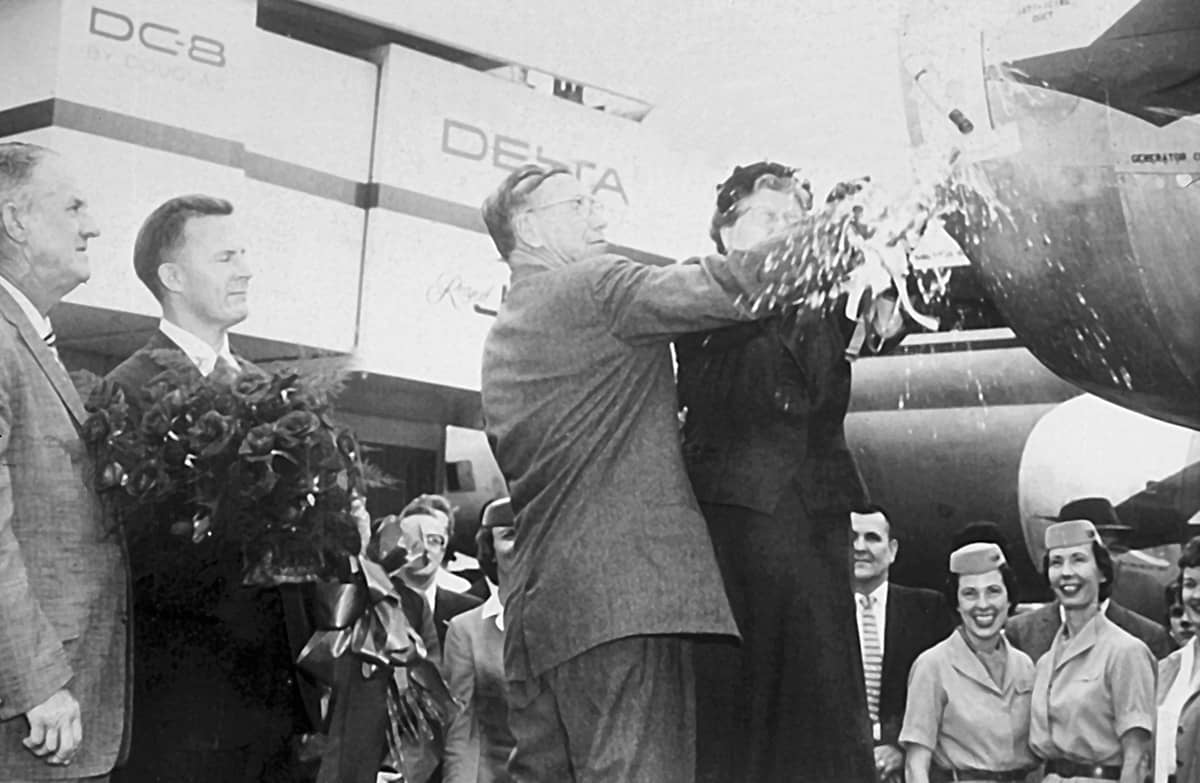
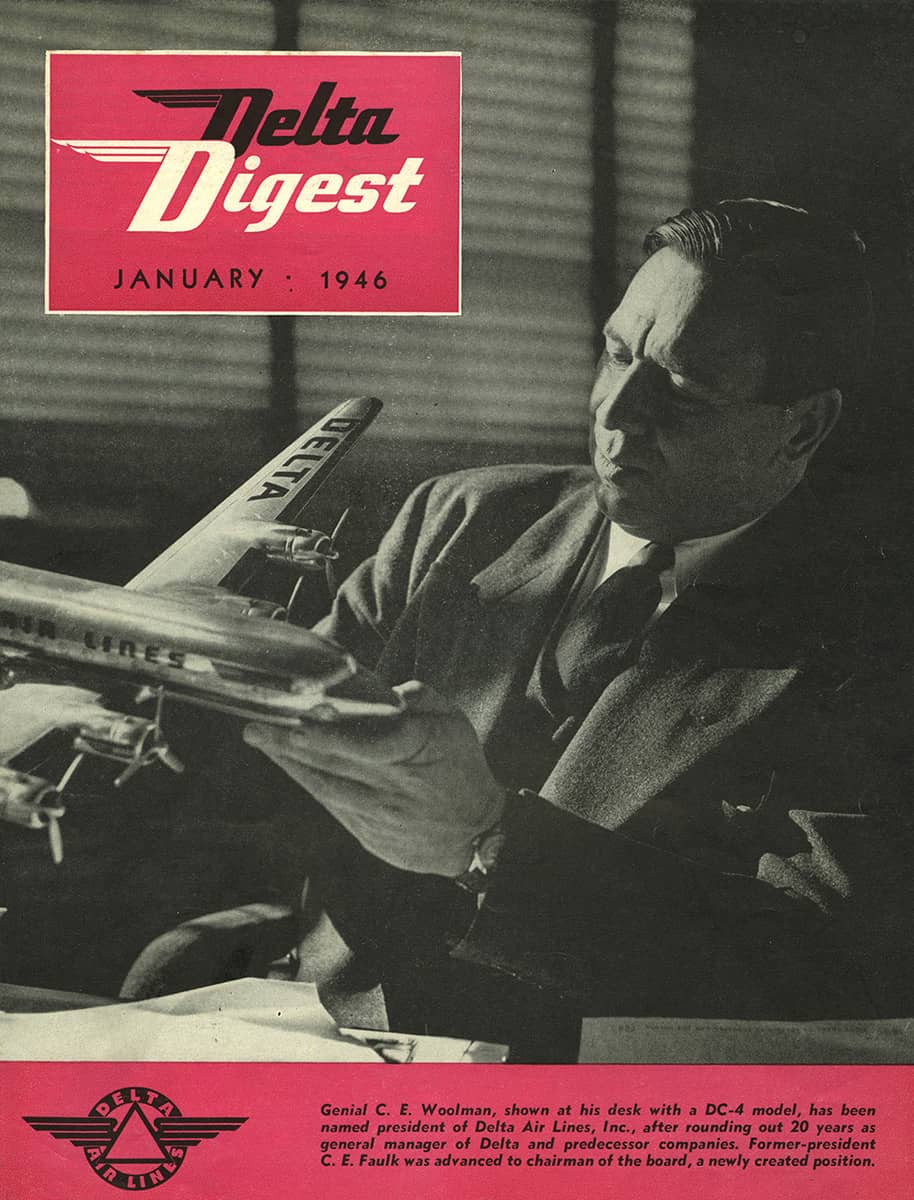
.jpg?sfvrsn=85c5ce73_1)